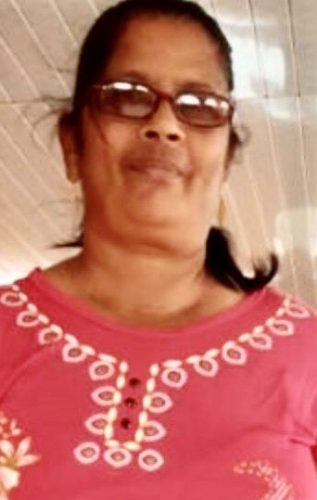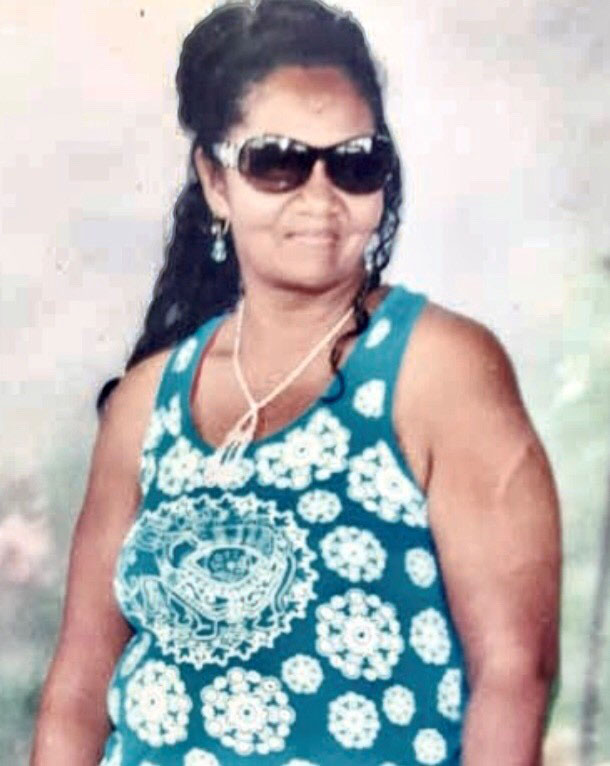The campaign to eliminate filaria started off successfully but it was affected in Region 10 following reports in the Guyana Times (GT) that two women died after taking the pills.
Speaking to Stabroek News (SN) on Friday, a team from the Pan-Ameri-can Health Organization (PAHO) said it was disappointed with the damaging report and the fact that the media house did not act responsibly.
As a result, there has been a very high refusal rate in Region 10. Luckily, the other regions – one to seven, had already been completed.

The GT reported that the two women; Chanmoonie ‘Vida’ Rampaul, 55, of Vergenoegen, East Bank Essequibo and 57-year-old Domattie Mannie of Essequibo, died after taking the pills.
PAHO has declared that there is nothing showing empirically that their deaths have a linkage to the pills in terms of cause and effect.
Rampaul’s son Kishan told this newspaper that she took the pills on Saturday November 16 and died on Thursday November 21. He said that her blood pressure was probably high but admitted that she had not been taking any hypertensive pills at the time.
He said too that they could not prove that the pills caused her death because when they requested a toxicology test, the
post-mortem (PM) had already been completed.
Side effects of the filaria pills include drowsiness, nausea and diarrhoea and occur after the first 24 hours of taking them.
Kishan said his mother complained of slight headaches. He said too that on the day of her death, she was experiencing shortness of breath. She thought she was having a cold and asked for chlorophan cough syrup. But there was none in the house and she took piriton instead. That did not help and she was rushed to the hospital where she was pronounced dead on arrival.
The other pills she was taking were; aspirin, panadol, ketoconozole (an anti-fungal), flagyl and diclofenac.
Results from the PM examination proved that she died as a result of “dissecting aortic aneurysm, hypertensive cardiopathy and obesity.”
In the case of Mannie, the PM results stated her cause of death as myocardial infarction or heart attack.
The PAHO team that this newspaper spoke to comprised of Dr. William Adu-Krow, Country Representative; Dr. Fabu Moses-Stuart, National consultant; Michael Itwaru, consultant for the elimination of LF and other representatives; Nathely Caleb-Mars and Jean Seme Alexandre.
Aneurysm
Dr. Adu-Krow told SN that the aneurysm meant that Rampaul’s blood pressure was very high and that none of the pills she was taking was to control it.
He lamented that “aneurysm can kill anyone at anytime… It has nothing to do with the drug (filaria pills)… Burst aneurysm could have occurred even before the campaign.”
He said too that it is just a coincidence that it happened at that time and “it is killing the campaign.”
He pointed out too that “none of the drugs lead to the weakening of a blood vessel.
So if there was an aneurysm then they need to put it into perspective by the problem that they have in terms of the temporal sequence…”
He said too that the anti-fungal tablet that Rampaul was taking “is quite strong and it is (usually) reserved for more serious anti-fungal infection.”
He lamented: “It would really help us to have a successful campaign, so if the son can come openly and say that there was no proof of a linkage” it would help.
The PAHO Country Representative said too that in terms of the toxicology, if the specimen is still available, and the family wants to send it to the US for testing “we are prepared to do that. We are also prepared to facilitate any emotional support that the family may need to help them deal with their grief. It is a bad time for the family as well as for PAHO.”
According to Dr. Adu-Krow: “Whenever you have bad press it affects everything… It prevents people from wanting to take the pills.”
He said people who are not educated may think that because they are the breadwinners, if they die no one would be there to take care of their families.
“But they must understand that if they develop big foot (filaria) in 20 years time, that family is doomed because they would not want to be associated with anybody in society,” Dr. Adu-Krow said.
He stressed: “No one is forced to take the pills but we just impress upon people the usefulness… A person may not have a big foot but he may be harbouring the parasite. The fact that we do not know, is imperative that we do something for the public good. If you kill your parasites you are preventing someone else from getting it.”
He advised everyone to take the pills so that they can prevent the country from being one of the few endemic areas of the world.
Target
The campaign targets 65 percent coverage from each region but luckily for regions two and three, where the deaths occurred, over 73 percent was completed.
So far, more than 493,000 Guyanese have successfully used the drug since the campaign started.
The PAHO team said if they do not pass the goal in Region 10 it means that that region would have to start again in two years.
The articles have scared people away from taking the pills and it is unfortunate that it happened even though PAHO had engaged the media about the benefits of the Lymphatic Filariasis Mass Drug Administration (LF MDA) campaign before the launch on October 31, the team said.
The one-month exercise is being held in collaboration with the Ministry of Public Health in regions one to seven and Region 10, which are said to be endemic.
A new triple drug therapy was implemented, including the use of Ivermectin, along with a combination of Diethyl-carbamazine (DEC) and Albendazole.
Caleb-Mars said over 1500 pill distributors (PD) underwent training and that the pills are administered in their presence before it could be recorded.
She explained that Guyana must attain validation as it relates to the LF MDA and in order for that to happen they must have two consecutive years using the triple drug therapy. If one region fails, it has an effect on all the regions.
She assured the public that the tablets are safe and that if there are side effects, they are only minimal.
She said too that if some people feel sick or have a reaction after taking the pills it could mean that they may be carrying the filaria parasite in their bodies.
She said too that the PDs are also trained to ask recipients of the pills, whether they were on any medication because “there is an exclusion criteria;” children under two, pregnant women, seriously ill people and lactating mothers in the first week.
Dr. Moses explained that the “livers of babies under one week are not so firm to metabolize the pills they get through the breast milk.”
Children between the ages of two to five would receive the DEC and the albendazole but they would not receive the Ivermectin.
The team said that Guyana is not the only country where the campaign is being held and that it was done in Brazil and many African countries.
When asked, the team said the pills are not harmful to people with underlying problems like diabetes, hypertension and heart conditions and that they are aware of many people with those conditions who have taken them and nothing has happened.
Alexandre told this newspaper that Guyana is the last country for this year to use the combination of pills and that recommendations for its use was made in 2017.
He said: “Countries have to make the decision whether they want to go the faster way or not, which is two years for elimination instead of five years.
Many countries have adopted this new strategy and have shared their experiences with other countries that were planning to use it.”






